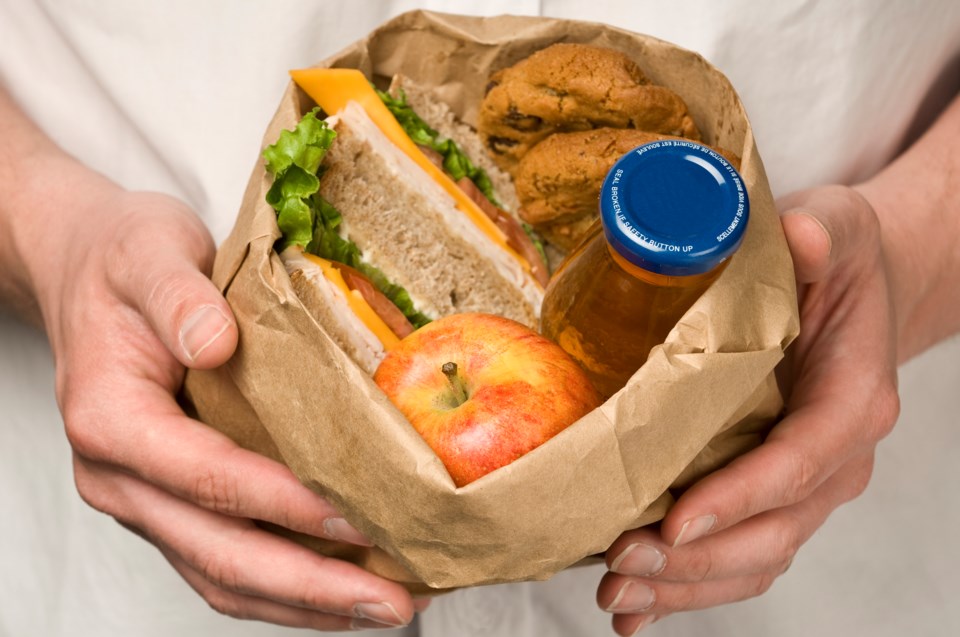The other day, the Greater Vancouver Food Bank received 30 tonnes (60,000 lbs) of beautiful mandarin oranges. While this might sound like a happy story, the unfortunate truth is that these edible, healthy oranges were part of a larger shipment on their way to the landfill to be dumped and forgotten. That is 60,000 pounds of edible, nutritious food thrown away while millions of Canadians go to bed hungry each night.
Finding ways to intervene before high-quality food goes to landfill is a challenge many organizations seek to solve. Luckily for the Greater Vancouver Food Bank, we have formed strategic partnerships that allow us to step in and divert this fresh, nutritious food into the hands of our clients and community agencies.
For many years we have worked with ReFeed Canada, a zero-waste, circular nutrition food recovery business in Langley, BC. Established by Stuart Lilley, ReFeed was created to repair the local food system by capturing and using 100% of the nutrition found in unused food and returning it to feed people, livestock, and the soil. Stuart and his team recover industrial volumes of fresh food, which would otherwise end up in landfill as "waste," and re-route it to food banks to impact our communities. The remaining food that is unsuitable for human consumption is donated to local farms as animal feed, and the remainder is composted through ReFeed's worm farm project, creating nutrient-rich, organic fertilizer and soil supplements that go back into our local farmland, feeding the soil.
Through this partnership with ReFeed, the GVFB has recovered more than 800,000 pounds of nutritious fresh food and diverted it into the hands of those in need. Children, seniors, and families can now take home fresh fruit and vegetables, helping us better serve our growing number of clients. As grateful as we are to receive this donation, we recognize that this is just a tiny portion of the daily food deemed as industry "waste." When referring to food, the word waste instantly brings a negative connotation. The reality is that this food is not waste, but rather a surplus of high-quality, edible products. The use of the word surplus is significant, as it reflects the state of our province, having a surplus of food while simultaneously supporting more hungry citizens.
The reasons for this surplus can vary. We've seen gala apples and avocados that were a few centimetres too small to sell, and zucchinis left in the farmer's field because the best crops were already harvested. These are just a few examples of how our broken food system is failing British Columbians. There are millions of pounds of food wasted every year, and yet the GVFB is busier than it has ever been.
We hear daily stories from families where parents are skipping meals so their children can eat. Seniors are running out of their fixed incomes at a rapid rate with inflation and the cost of living, unable to purchase nutritious food in their golden years. These stories are becoming more frequent and reflect a failure of our social systems.
As I always say, we don't have a food shortage, we have a food distribution problem. Earlier this year, we published a short documentary with ReFeed highlighting the importance of finding a solution for the current state of our food systems. In this film, we brought together various experts and advocates who can provide salient insights into the growing food surplus issue. These experts demonstrate what many of us already know: it will take a collaborative group effort to ignite change. We need experts across industries to step in and change the systems. Our current system is failing our people.
A solution is becoming more critical as we register an additional 800+ clients monthly. In just this past year, we have registered 10,000 new clients, many families, seniors, and people under 18. We're distributing record pounds of food to our communities, close to 9M lb in 2023, and our operational costs are accelerating at a similar rate. This is not sustainable, and it is not slowing down. Our food systems need to be resilient in the face of growing demand, which means we need new approaches and solutions needed to help address food insecurity. The only way to get there is by working together.
David Long is CEO of the Greater Vancouver Food Bank.



